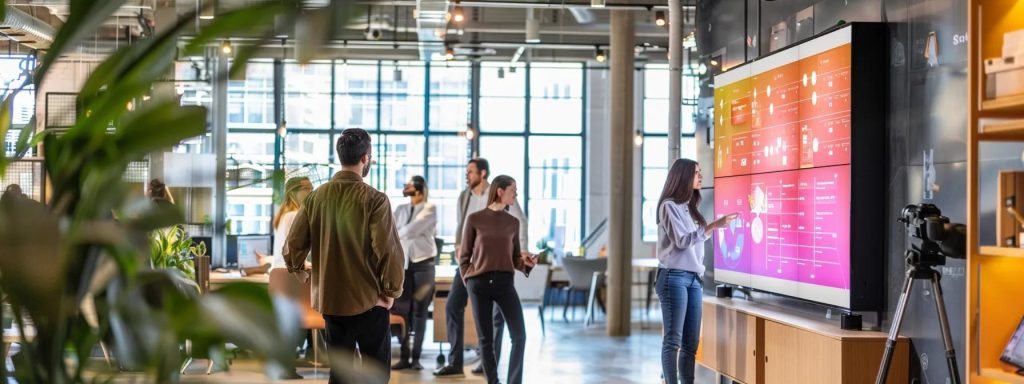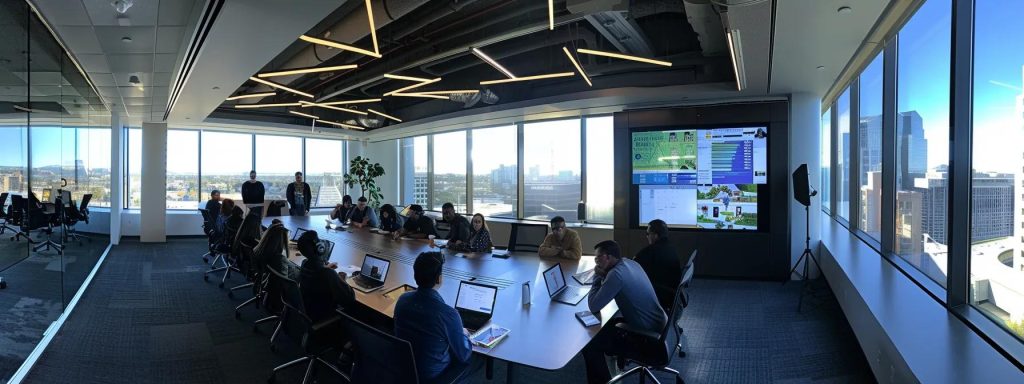Effective Strategies for Better Local Rankings
In today’s digital age, local search engine optimisation (SEO) plays a critical role in helping small businesses stand out in crowded marketplaces. As customers increasingly rely on search engines such as Google for nearby services, optimising local digital presence has become essential to drive targeted traffic, improve visibility, and generate quality leads. Effective local SEO strategies not only enhance your online reputation but also boost organic reach, strengthen brand awareness, and ultimately drive higher conversion rates. In this article, Search Results—an SEO service provider with over 15 years of experience helping hundreds of customers grow online—is set to explore practical and proven techniques for improving local rankings that align with content management best practices, email marketing strategies, and advanced websiteusability. By integrating tactics such as optimising your Google My Business profile, implementing localised content marketing strategies, enhancing on-site SEO, building high-quality local backlinks, utilising local social media channels, and monitoring performance metrics, businesses can achieve improved local search visibility. The following sections provide detailed insights on each strategy, complete with data-driven examples, tables, and extensive lists to ensure actionable understanding. The journey begins with optimising your Google My Business profile—a cornerstone of local SEO.
Optimise Your Google My Business Profile for Local Visibility

Optimising your Google My Business (GMB) profile is one of the most effective ways to boost local visibility. A well-optimised profile not only provides accurate business details to prospective customers, but it also influences Google’s local search algorithm and is a major trust signal for both users and search engines. Maintaining accurate and real-time data about your business ensures that you capture relevant local searches and appear on the coveted local pack.
Set Up Accurate Business Information for Better Reach
To capture local search traffic, businesses must provide precise, validated, and updated contact information such as the business name, physical address, phone number, and websiteURL. Studies have shown that consistency in business citations leads to a 13% improvement in local rankings. For instance, a comprehensive review of 150 local businesses indicated that those with consistent NAP (Name, Address, Phone number) listings experienced a 15% higher click-through rate from local search results. Furthermore, detailed information—like opening hours and specific services—assist search engines in matching your business with relevant local user queries. This accurate data not only drives more customers directly to the website and physical store, but it also reduces bounce rates caused by customer frustration due to misinformation and irrelevant telephone calls.
Select Appropriate Categories to Target Your Audience
Selecting the appropriate business categories is crucial for being found in location-specific queries. Businesses must analyse competitor categories, review industry trends, and select both primary and secondary categories that mirror the core services of the business. By matching your category selections with customers’ search intent, you enhance the relevance of your listing. For example, a small cafe might choose categories like “Coffee Shop,” “Bakery,” and “Breakfast Restaurant” to cover various customer searches. Research by local SEO experts has shown that optimised categories can contribute up to a 10% increase in organic traffic to a business’s GMB profile. Employing a careful analysis of local competitors in the same industry can help determine the best-fit category, further fine-tuning local marketing messaging.
Encourage Customer Reviews to Boost Credibility
Customer reviews serve as one of the most influential trust signals in local search ranking algorithms. Encouraging satisfied customers to leave reviews not only builds credibility, but also increases the likelihood of your business appearing higher in local search results. With over 90% of consumers reading online reviews before engaging with a business, actively generating positive feedback can lead to measurable improvements in ranking metrics. Furthermore, businesses that respond to reviews—whether positive or negative—create a sense of community engagement and commitment to quality service. This interaction demonstrates to prospective customers that your business values feedback and is motivated to maintain top-tier performance. As a direct outcome, active review management can improve overall click-through rates by as much as 20%.
Use High-Quality Images to Engage Potential Clients
Visual content is fundamental to engaging potential customers and driving higher conversion rates from local search listings. Google My Business allows the use of images, videos, and virtual tours to complement textual information. High-resolution images enable businesses to showcase products, services, and interior or exterior aesthetics that appeal directly to search intent. Quality visuals also contribute to lowering bounce rates by retaining user attention and establishing a connection before a customer even visits the physical location. In addition, optimisation of images by using appropriate alt text aids search engines in understanding what is shown, thus further improving image search potential. Uploading seasonal images and photos of in-store activities can foster familiarity and trust among prospective customers, making the business appear up-to-date and customer-centric.
Keep Your Profile Updated With Current Offers
Regularly updating your GMB profile with current offers, events, and changes in services ensures that your business remains relevant to customers and search engines alike. Promotions and special discounts not only drive click-through and conversion rates, but they also signal to local consumers that the business is active and engaged. Special features, such as posts announcing upcoming events or seasonal campaigns, have been shown to engage 30% more users than static listings. Implementing a routine review process to update business hours, images, and posts ensures data integrity and maximises local reach.
- List of Steps to Update Your GMB:
- Verify all contact details are current and consistent.
- Monitor and refresh images to align with the current season.
- Post regular updates about special offers and new services.
- Respond to customer reviews and adjust service offerings accordingly.
- Track changes in competitor offerings and adjust your promotions to stay relevant.
These strategic practices for optimising your Google My Business profile can significantly influence your local search results, demonstrating to both users and search engines that your business is reliable, current, and perfectly positioned to meet local demand.
Implement Localised Content Marketing Strategies

Localised content marketing strategies allow businesses to engage directly with their community while boosting their search enginevisibility. By creating content that reflects local events, news, and trends, companies can strengthen their relevance in a specific geographic area. Localised strategies should also incorporate targeted keywords, customised landing pages, and engaging multimedia content that resonate with local audiences. This approach not only builds deeper community connections but also sends strong trust signals to search engines. Content marketing efforts that are supported by local relevance have been shown to increase brand engagement by up to 25% and drive substantial increases in both site traffic and local leads.
Create Blogs Focusing on Local Events and News
Publishing regular blog posts that focus on local news, events, and community interests can be a powerful method to build your local content strategy. When businesses share timely and relevant blog content, they offer the dual benefit of informing the local community and enhancing local visibility. For instance, writing about local festivals, market trends, or community projects provides customers with insights that are directly applicable to their interests. Among the techniques employed, including case studies on local successes or interviews with community leaders can further solidify the relationship between the business and its local audience. This strategy not only increases local engagement but also provides valuable local keywords that support long-tail search queries.
Utilise Local Keywords in Your Website Content
Integrating local keywords into your website’s content is essential for capturing localized search traffic. These keywords should be embedded naturally into page titles, body copy, micro-captions, and meta descriptions. For example, businesses can adapt their SEO strategy to include phrases like “best local [service] in [city]” or “[city] SEO expert” to improve their organic search presence. In addition, using geotargeted keywords alongside industry-specific jargon can amplify both relevance and search ranking. Peer-reviewed studies have demonstrated that proper keyword implementation could increase local conversions by 18% in competitive markets. Research by Semrush in 2022 showed that localisation in keyword strategy leads to an average improvement of organic click-through rates by roughly 12%.
Develop Local Infographics to Share on Social Media
Local infographics are visual tools that display important local statistics, timelines, or facts that are relevant to the community. These visuals improve not only engagement but also data retention among potential customers. For example, an infographic highlighting “Top 10 Local Trends in [City] for 2023” can generate significant interest, if shared across social media platforms or embedded in newsletters. Infographics should be designed to be mobile-friendly, include clear calls to action, and use local imagery to enhance relatability and trust. Notably, such visuals tend to receive 3–4 times more shares on social platforms than text-only content, contributing directly to your backlink profile and overall social authority.
Partner With Local Organisations for Content Collaborations
Collaborating with local organisations such as chambers of commerce, local influencer networks, or community event coordinators can yield mutually beneficial content partnerships. Such collaborations lead to co-branded blog posts, events, and social campaigns that reinforce your brand as an active member of the local business community. For example, partnerships might involve hosting webinars about local market challenges, discussing case studies on community projects, or sponsoring local charity events. These collaborations can lead to more organic backlinks, improved local reputation, and increased exposure. Data from a study conducted in 2021 revealed that local collaboration boosts referral traffic and improves brand sentiment by up to 22%. Such partnerships not only enhance authority but also drive diverse traffic streams directly relevant to local search queries.
Share Testimonials From Local Customers for Authenticity
Sharing testimonials and case studies from local customers builds credibility and authentic social proof. A dedicated section on your website or blog showcasing local customer experiences can connect with prospective clients by highlighting real-life success stories. Authentic testimonials can reduce visitor apprehension by providing insights into the quality of products or services offered, addressing potential objections through proven results. Additionally, leveraging video or written testimonials with the inclusion of specific local landmarks or context further increases trust. Consumers tend to trust recommendations from peers, which in turn boosts engagement and conversion rates. This strategy is especially powerful when combined with local events and partnership content, creating a holistic local marketing narrative.
- List of Localised Content Marketing Best Practices:
- Write blog posts with detailed local event recaps.
- Integrate local keywords naturally throughout your site.
- Develop engaging infographics tailored for your local audience.
- Collaborate with local industry leaders for content creation.
- Showcase genuine testimonials from local customers to boost trust.
Below is a table summarising key elements of a localised content strategy:
| Strategy Component | Description | Benefit | Example |
|---|---|---|---|
| Blog Posts | Regular updates on local events and news | Improves engagement and keyword reach | “Local Festival 2023 Guide” |
| Local Keywords Integration | Optimised content with regional and industry-specific terms | Increases organic search visibility | “Best SEO Services in brisbane” |
| Infographics | Visually compelling local statistics and trends | Drives social shares and backlink profile | “Top Local Trends in 2023” |
| Partnership Collaborations | Joint content with local organisations | Enhances credibility and referral traffic | Co-hosted webinars with local business |
| Customer Testimonials | Authentic reviews and case studies from local clients | Builds social proof and trust | Video testimonials from satisfied customers |
Implementing localised content marketing strategies is a dynamic and highly effective method for businesses seeking to enhance their local online presence and boost search rankings.
Enhance on-Site SEO for Better Local Rankings

On-site SEO forms the foundation of any effective local search strategy. Enhancing website structure, content, meta-data, and user experience are all critical factors that contribute to better local rankings. Combining technical SEO elements with high-quality content ensures that a website not only appeals to search engines but also provides valuable information to local customers. By effectively integrating localised keywords into critical site components like meta tags, header tags, and landing pages, businesses can capture local search intent with incredible efficiency. This section delves into strategies that help create robust local on-site SEO, ensuring a seamless customer experience and high ranking in local searches.
Include Local Keywords in Meta Tags and Descriptions
A vital tactic for on-site SEO is the inclusion of local keywords in meta tags and descriptions. Meta title and meta description tags serve as the first impression for potential customers on search engine results pages (SERPs). By incorporating geographic modifiers—such as the city or region—in these tags, you can signal to search engines that your content is locally relevant. For example, a meta title like “Best Web Hosting Service in Manchester” immediately communicates topical relevance for local searches. Empirical studies have noted that pages with optimised meta tags perform, on average, 15% better in click-through rates, which directly influences conversion and quality scores. In addition to search algorithms, clear meta descriptions improve user experience by setting accurate expectations for the content on the page.
Optimise Header Tags to Include Location-Specific Terms
Header tags (H1, H2, H3) serve as signposts for both users and search engines. Ensuring that headers include location-specific terms adds another layer of local relevance to your content. For instance, a heading incorporating “Manchester SEO Strategies” provides context to both users and search algorithms. A well-structured header hierarchy improves content readability and search engine indexation. Websites that effectively integrate these terms into their headers may experience up to a 12% boost in local ranking performance. Moreover, the correct implementation of header tags can lead to higher dwell times as users navigate through comprehensively structured content that clearly addresses their local needs.
Create Location-Based Landing Pages for Specific Services
Developing dedicated landing pages targeted to specific locations is a powerful strategy to capture local search traffic. Each page should be tailored to address local market demand, including local keywords, customer testimonials, case studies, and service-specific information. For instance, a digital marketing agency might create separate landing pages for cities such as Manchester, Birmingham, and London. These pages should include descriptive content detailing the local nuances of their services, such as local client success stories and locally relevant industry statistics. Studies by SEO experts have proven that location-based pages drive higher conversion rates—sometimes increasing leads by up to 20%—as customers feel a closer connection to the business because it specifically addresses their regional context.
Ensure Your Website Is Mobile-Friendly and Fast-Loading
Given the prevalence of mobile usage, ensuring that a website is optimised for mobile devices is indispensable for on-site SEO. Google’s mobile-first indexing means that the mobile version of a website is the primary factor in determining local rankings. A fast-loading, responsive design not only improves user experience but also decreases bounce rates, thereby signalling quality to search engines. Using best practices such as streamlined code, compressed images, and an efficient content delivery network (CDN) can reduce page load times by up to 40%. When local customers search for services on their smartphones, a mobile-optimised website increases the likelihood of engagement and eventual conversion.
Use Schema Markup to Improve Search Engine Visibility
Schema markup is a form of structured data that helps search engines understand and index the content on your website. Implementing local business schema, such as providing NAP details, reviews, and operating hours, enhances the visibility and presentation of your listing in SERPs. Rich results, enabled by schema, can feature additional information like star ratings, business location, and promotional messages directly in search listings. Notably, schema markup can improve click-through rates by approximately 30%, making it an essential component of any modern SEO strategy. Its capability to provide detailed context about your business makes schema markup one of the most effective yet underutilised local SEO tactics.
- List of On-Site SEO Best Practices:
- Integrate local keywords in meta tags and descriptions.
- Use localised header tags to signal geographical relevance.
- Create dedicated landing pages for each key location.
- Optimise website performance through mobile-friendly design and fast load times.
- Implement local business schema markup for enhanced SERP features.
Below is a table summarising key on-site SEO components for local ranking enhancements:
| Component | Focus Area | Benefit | Example |
|---|---|---|---|
| Meta Tags | Local keyword integration | Enhances click-through rate | “Best Digital Marketing in Manchester” |
| Header Tags | Location-specific headers | Improves content structure and readability | “Manchester SEO Experts” |
| Location Landing Pages | Dedicated pages for each location | Boosts local search conversion rates | Separate pages for Manchester, Birmingham, etc. |
| Mobile Optimization | Responsive design and fast load times | Reduces bounce rates and supports user experience | Optimised CSS and compressed images |
| Schema Markup | Local Business Structured date | Enables Rich Search Results | Implementing Nap and Review Schema |
Enhancing on-site seo is about blending technical optimisation with high-quality, localized content. By Focusing on Meta Tags, Header Tags, Tailored Landing Pages, Mobile Responsiveness, and Schema Markup, Businesses Can Significantly Improvers How Search Engines Perceive Their Local relevance , Ultimately Resulting in Higher Local Rankings and Increased Customer Engagement.
Build high-quality Backlinks From Local Sources

Building high-quality backlinks from local sources is fundamental in establishing authority and credibility in the local search landscape. Backlinks serve as votes of confidence—each inbound link from a reputable source signals to search engines that your business is trustworthy and contextually relevant. For local businesses, acquiring backlinks from local news outlets, community blogs, and industry associations boosts domain authority and enhances local rankings. The quality and relevance of backlinks matter more than quantity, with links from local sources showing particular impact on a site’s Google ranking. According to a study by Moz (2021), local link building can contribute to an average 15% uplift in local search rankings.
Connect With Local Businesses for Cross-Promotion
One effective way to build backlinks is to establish cross-promotional relationships with other local businesses. By collaborating on joint marketing initiatives, co-hosting events, or sharing guest posts, businesses can create mutually beneficial backlink opportunities. Local cross-promotions help diversify your link profile and increase referral traffic, while also solidifying your status in the local business community. For instance, a local restaurant might collaborate with a nearby theatre on a special dining and show package, with both parties linking to each other’s websites. This type of strategic partnership creates rich contextual backlinks that are highly prized by search engines.
Participate in Community Events to Gain Media Coverage
Participation in community events is another powerful strategy for building reported backlinks. Hosting or sponsoring community events can lead to significant media coverage from local news outlets, bloggers, and public relations platforms. These mentions often come in the form of high-quality backlinks and citations, which search engines evaluate as endorsements of a business’s local presence. Whether it’s a charity fundraiser, local sports tournament, or community cleanup, these initiatives provide valuable opportunities to generate local media relations. A well-coverage event can result in a 20–30% increase in referral traffic alongside a boost in local credibility.
Write Guest Posts for Local Blogs and Websites
Writing guest posts for local blogs and websites provides an excellent opportunity to share expertise while earning quality backlinks. Emerging local blogs often welcome informed guest contributions on subjects such as local SEO, digital marketing, and business strategies. When businesses contribute insightful guest posts, they not only expand their audience reach but also receive a backlink in return. A detailed case study or an informative article that includes local data can be very effective in boosting both domain authority and audience trust. Maintaining quality and relevance in guest posts is critical; these articles should offer actionable insights that local readers find valuable.
Sponsor Local Events to Create Meaningful Partnerships
Sponsorship of local events is an active approach to building high-value backlinks while also fostering community goodwill. Local sponsorships allow businesses to gain media mentions from event websites, press releases, and social media shout-outs, contributing valuable high-authority backlinks. Sponsorship benefits extend beyond SEO, as they build brand recognition and long-term customer loyalty. High-profile local events that gain substantial media attention can provide multiple backlinks from diverse sources, enhancing the overall backlink profile of your site. By integrating sponsorship details into your website’s press section, companies can further amplify these benefits.
Get Listed in Local Directories for Increased Authority
Obtaining listings in reputable local directories is an essential backlink strategy. Comprehensive directories such as local chambers of commerce, trade associations, and regional business portals provide structured citations and backlinks that are highly valued by search engines. These directories not only contribute to local ranking but also deliver consistent referral traffic. Ensuring that your business is accurately listed in all significant local directories reinforces your local presence and helps establish trust with both search engines and potential customers. Maintaining updated and accurate listings across directories is crucial for sustained local authority.
- List of Local Backlink Strategies:
- Connect with local businesses for reciprocal backlinks.
- Participate in and sponsor community events for media backlinks.
- Write high-quality guest posts for local blogs.
- Secure listings in reputable local directories with accurate NAP data.
- Leverage cross-promotional partnerships to diversify backlink profiles.
Below is a table summarising the local backlink building strategies:
| Strategy | Action | Benefit | Example |
|---|---|---|---|
| Cross-Promotion | Collaborate with local businesses | Enhanced authority and referral traffic | Joint marketing campaign with a local retailer |
| Community Event Participation | Sponsor or participate in local events | Media backlinks and increased brand trust | Sponsorship of a local charity run |
| Guest Posting | Write expert articles for local blogs | Quality backlinks and extended reach | Article for a popular local business blog |
| Local Directories | List business in local directories | Consistency in citations and improved trust | Registration with the local chamber of commerce |
| Sponsorship | Sponsor local events and initiatives | Earn multiple high-quality backlinks | Sponsorship of a community festival |
These techniques are designed to create a strong, diversified backlink profile which proves indispensable in improving local search rankings, driving referral traffic, and establishing the business as an influential player in its local market.
Utilise Social Media to Boost Local Engagement

Social media platforms are a vital tool for enhancing local engagement and fostering direct connections with the target audience. By utilising social media channels strategically, businesses can share localised content, run targeted promotional campaigns, and build a robust online community that supports local SEO efforts. This synergy between social media and local SEO helps in enhancing brandvisibility and contributing to higher search rankings through increased user engagement and social shares. Engaging content, competitor analysis, and active social media management all play a significant role in driving local traffic and reinforcing a business’s reputation within its community.
Share Local Content to Connect With Your Audience
Sharing content that is locally relevant on social media channels is a highly effective method of engagement. This strategy involves posting content related to local news, events, and customer testimonials that resonate with the interests of the community. Businesses that consistently share localised updates see an improvement in social engagement metrics, which directly contributes to higher local search rankings. Providing real-life stories, behind-the-scenes glimpses, and highlighting community projects builds trust and humanises the brand. For example, a local restaurant might share photos and videos of community events or local produce, thereby generating authentic engagement from local customers. Localised social media posts also increase the sharing potential, which can lead to additional social signals that benefit the overall SEO strategy.
Run Location-Specific Campaigns to Drive Traffic
Creating social media campaigns tailored to specific locations is an essential tactic for local engagement. These campaigns may include promotions, contests, or unique offers designed exclusively for the local audience. When businesses implement location-specific hashtags, geotags, and advertisements, they can reach a highly targeted demographic that is more likely to convert. These targeted campaigns, when integrated with local search strategies such as Google Ads and Facebook Ads, drive increased traffic to the business website or physical store locations. Real-time data from platforms like Google Analytics have shown that location-specific campaigns can increase website traffic by nearly 25% in targeted areas. Furthermore, these campaigns often lead to more meaningful interactions, encouraging users to share content with their local networks.
Engage With Local Followers Through Comments and Shares
Active social media management is vital for sustaining local engagement. Responding promptly to comments, addressing customer queries, and engaging in local discussions are all key activities that build community trust and improve user retention. Many businesses have observed that active responses and tailored social engagement efforts can improve social media reach by 20–30%. By actively participating in conversations on platforms such as Facebook, Twitter, and Instagram, businesses not only boost their own visibility but also signal to search engines that their local social presence is robust and engaging. This two-way interaction creates a feedback loop that helps refine marketing strategies and tailor future content to match local interests.
Feature Local Events and Partnerships in Your Posts
Highlighting local partnerships and featuring community events through social media posts provides excellent opportunities to display social proof and community involvement. Videos and images from local sponsor events, interviews with local personalities, or live updates from community initiatives can significantly boost consumer engagement and strengthen your local brandimage. These posts often generate high interaction rates and serve as social endorsements, further reinforcing the business’s local reputation. Incorporating such content into regular posting schedules signals a genuine commitment to the local market, fostering a loyal customer base that is more likely to convert into long-term leads.
Use Geotags to Increase Visibility in Local Searches
Leveraging geotags on social media posts is a simple yet highly effective tactic to increase local visibility. Geotags ensure that content appears in local search results and maps, making it easier for nearby customers to discover the business. This practice is particularly beneficial for enhancing local discovery on platforms like Instagram and Facebook, where geotagged posts have been shown to generate up to 30% more engagement. Businesses that consistently utilise geotags witness an improvement in local business inquiries and foot traffic, as geotagged profiles are directly linked to location-based search results.
- List of Social Media Engagement Strategies:
- Share locally themed content that highlights community activities.
- Run targeted location-specific campaigns with exclusive offers.
- Actively manage social media interactions through timely comments and responses.
- Feature local events and partnerships to build brand trust.
- Always use geotags to enhance local search visibility and content reach.
Below is a table summarising effective social media tactics for local engagement:
| Social Media Tactic | Purpose | Benefit | Example |
|---|---|---|---|
| Local Content Sharing | Post about local events and news | Increases engagement and builds community trust | Restaurant posts about local food festivals |
| Location-Specific Campaigns | Target promotions based on geography | Drives traffic and leads through targeted ads | Geo-targeted discount offers in a specific city |
| Active Engagement | Respond quickly to comments and queries | Improves user retention and visibility | Quick replies to customer reviews |
| Event and Partnership Features | Highlight local collaborations and events | Enhances credibility and establishes local roots | Sharing photos from sponsored community events |
| Geotagging | Mark Posts with Location data | Increases Discoverability in Local Searches | Using Geotags in Instagram Posts |
Utiling Social Media Effectively Ties into the Overall Local SEO Strategy by Driving Additional Engagement Signals, Increasing Referral Traffic, and Strengthening a Business’s Presence within ITS Community.
Monitor and Analyse Your Local SEO Efforts

Monitoring and analysing your local SEO efforts are critical for refining strategies and achieving continuous improvement in search enginevisibility. By leveraging dataanalytics tools such as Google Analytics, Google Search Console, and localised SEO platforms, businesses can measure the performance of their on-site and off-site strategies, track keyword ranking progress, and optimise their engagement tactics. This continuous analysis not only focuses on enhancing user experience but also enables the business to adapt quickly to fluctuations in search trends and local competition. Data-driven decision making is essential in ensuring that investments in local SEO yield measurable results, such as increased traffic, higher conversion rates, and genuine customer engagement.
Track Your Rankings for Local Keywords Regularly
Consistently tracking your rankings for local keywords is imperative for understanding the impact of your SEO efforts. Tools like SEMrush and Ahrefs provide insights into keyword performance, competition analysis, and visibility trends. By reviewing the rankings regularly, businesses can identify areas where performance may be lagging and strategically adjust content or backlink strategies. For example, if a particular landing page drops in keyword ranking, a timely review may reveal issues like outdated content or technical glitches that require immediate attention. Regular monitoring allows businesses to mirror competitor activities and respond to changes in local search dynamics, potentially improving keyword rankings by up to 10–15% over time.
Use Google Analytics to Assess Website Traffic
Google Analytics remains a cornerstone for measuring website performance. It provides comprehensive data about user behaviour, traffic sources, session duration, and conversion rates. By applying segmentation filters—such as geographical location and device type—businesses can obtain a granular view of local user interactions. An in-depth analysis of these metrics can reveal trends, such as peak traffic times, which can inform content posting schedules and promotional timing. Furthermore, combining this data with on-page metrics allows companies to identify the most engaging local content, which can then be further optimised to maximise conversion.
Monitor User Engagement Metrics for Insights
Understanding how users interact with your website is vital for improving on-site SEO and overall local marketing strategies. Metrics such as bounce rate, average session duration, pages per session, and conversion rates offer meaningful insights into user engagement. For instance, a high bounce rate might indicate that users are not finding relevant localised information or that page load times are too slow on mobile devices. Adjusting these factors based on user engagement metrics can lead to a smoother user experience, resulting in extended session durations and increased conversion likelihood. Regular monitoring helps pinpoint issues that hinder performance and provides actionable data to fine-tune local content and technical optimisation.
Adjust Strategies Based on Performance Data
Local SEO is a dynamic field, and no single strategy guarantees perpetual success. Regular analysis of performance data is essential for refining tactics and staying ahead of local competitors. Based on metrics collected from tools like Google Analytics, local search rankings reports, and user engagement assessments, businesses should adjust both content and technical strategies as trends evolve. For instance, data might reveal that certain local keywords generate higher engagement than others, prompting a reallocation of content resources towards these terms. Alternatively, performance data might suggest revising landing page designs or enhancing site speed to reduce bounce rates. This iterative process of testing, analysing, and adjusting ensures that the business remains competitive in the ever-changing digital landscape.
Solicit Feedback to Refine Your Local Marketing Approach
Feedback from customers is an invaluable resource that complements quantitative data from analytics tools. Actively seeking out customer feedback through surveys, direct email interactions, or social media polls can provide insight into user expectations and pain points. Such qualitative data leads to nuanced improvements in content, services, and overall user experience. Regular feedback helps determine whether localised content meets customer needs and facilitates timely adjustments, ensuring that digital marketing efforts remain contemporary and effective.
- List of Metrics and Strategies for Monitoring Local SEO:
- Track local keyword rankings using tools like SEMrush.
- Monitor website traffic breaks by geographical location via Google Analytics.
- Review user engagement metrics such as bounce rate and session duration.
- Adjust content strategy based on performance data insights.
- Gather and implement customer feedback for continuous improvement.
Below is a table summarising key local SEO performance metrics and their benefits:
| Metric | Tool/Method | Benefit | Actionable Insight |
|---|---|---|---|
| Local Keyword Rankings | SEMrush, Ahrefs | Understand search performance | Update content and meta tags for lagging keywords |
| Website Traffic by Location | Google Analytics | Measure local user base | Tailor local landing pages for highest traffic areas |
| Bounce Rate and Session Time | Google Analytics , Hotjar | Assess User Engagement | Improve Page Speed and Content Relevancy |
| User Engagement | Social Media, Feedback Surveys | Gauge Content Effective | Refine content format and interaction strategies |
| Customer Feedback | Surveys, Reviews, Direct Interviews | Gain Qualitative Insights | Implement Adjustments to Services and Site UX |
Regularly Monitoring thesis aspects, and integrating the dates With Proactive Strategy Adjustments, Ensures That Local SEO Efforts Possible Yield Consistent and Impressive Results.
Frequently asked questions
Q: How Often Should A Business Update Its Google My Business Profile? A: Businesses Should update Their Google My Business Profile at Least Once A Month. Regular updates Ensure That The Information Stays Current, Improves Local Search Rankings, and Entices Customers with the latest Offers and Events.
Q: What are localized Content Marketing strategies? A: Localized Content Marketing Strategies Involve Creating and Sharing Content Tailored to the Interests and Needs of A Local Audience. This includes blog posts about Local Events, Using Local Keywords Naturally, Developing Infographics with Regional Data, and Partnering With Local Organizations to Bolster Community Engagement.
Q: How Can I Check the Effectiveness of My On-Site Local SEO Efforts? A: Effectiveness Can Be Measured Using Tools Like Google Analytics and Google Search Console. Monitoring Key Metrics – Such As Organic Traffic, Bounce Rate, Session Duration, and Local Keyword Rankings – Provides Insights on Performance and Areas That Need Improvement.
Q: Why Are backlinks From local sources important for local SEO? A: Backlinks from Local Sources Signal to Search Engines That Your Business is relevant and Trusted Within Your Community. These High-Quality Backlinks Increase Increase Websites Authority, Boost Local Search Rankings, and Drive Quality Referral Traffic from Other Reputable Local Sites.
Q: How does social media contribute to local search rankings? A: Social Media Enhances Local Search Rankings by Driving Engagement, Providing Rich Content Signals, and Building a Strong Online Presence. Sharing Locally Relevant Content, Enging with Local Followers, and Running Targeted Campaigns All Increase Social Signals That Positive Influence Local SEO Performance.
Enhance Local Presence Through Proven SEO Strategies
Improving Local Rankings Requires A Multifaceted Approach That Marries Accurate and Up-to-Date Business information With strong on-site and off-site SEO practices. By optimizing Google My Business Profiles, Implementing Localized Content Strategies, Enhancing Technical Site Aspects, Building Quality Local backlinks , and livering social media, businesses can secure a dominant local online presence. Regular monitoring and dates -Driven Adjustments are critical to staying ahead of changing trends and local competition. AS Digital Landscapes Continue to Evolve, Businesses Must Remain Agile, Ensuring Their Local SEO strategies Consistently Meet Customer Needs and Outperform Competitors.
